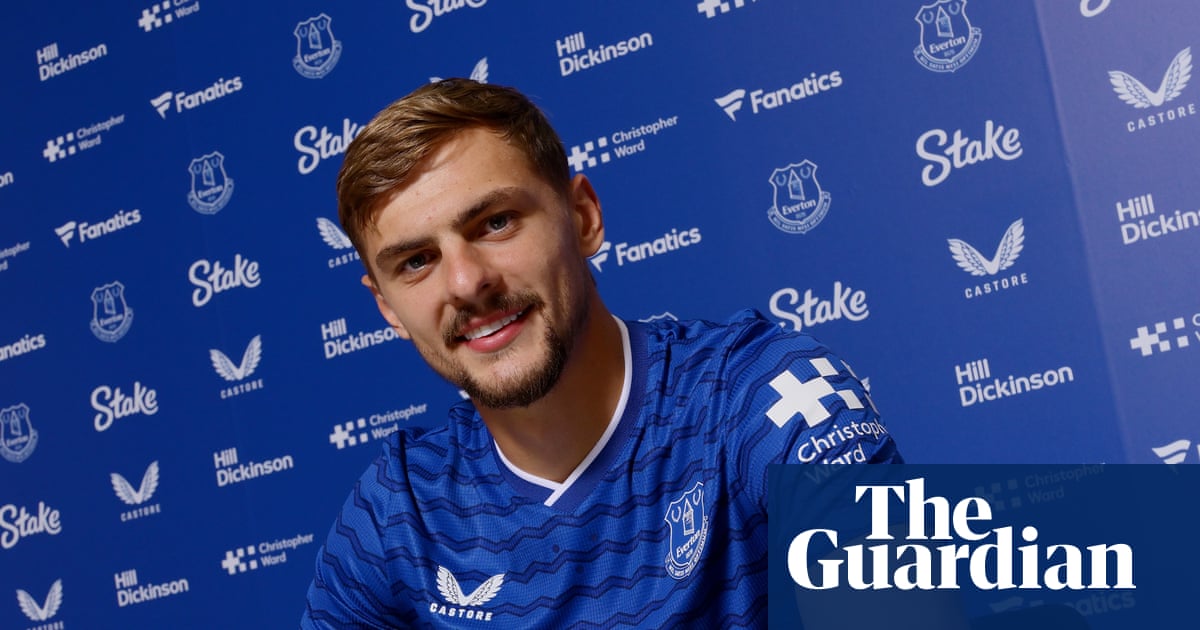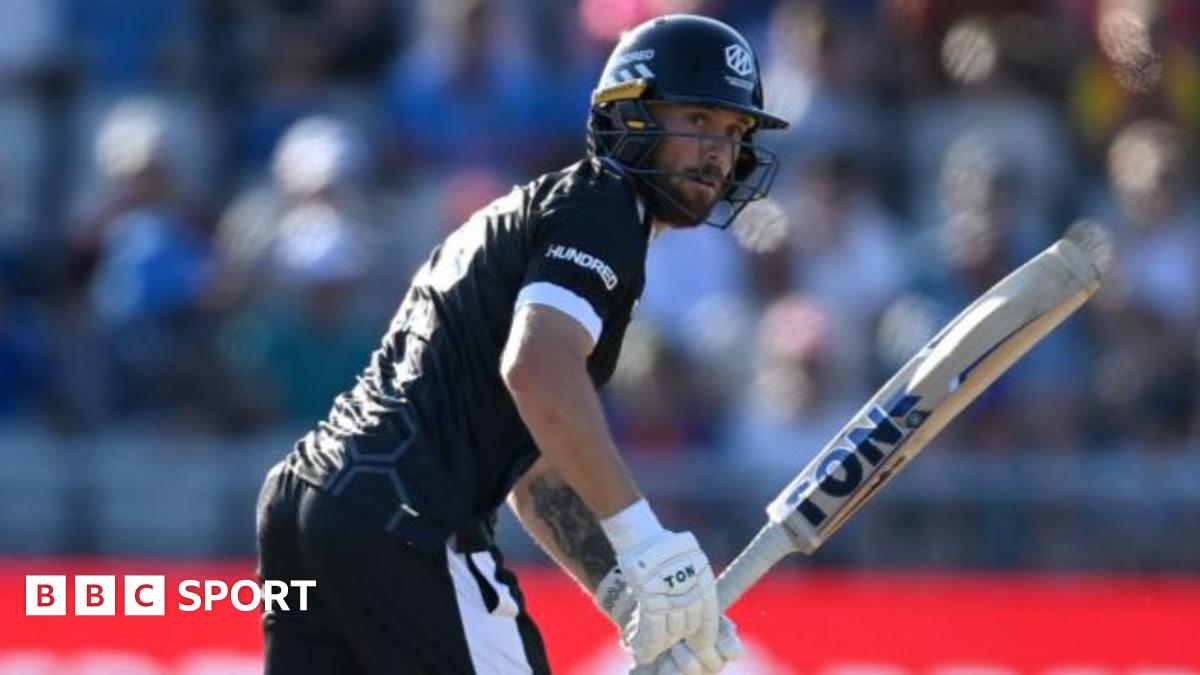Tom Dempsey, Alex Sanchez and the triumphs and trials of disabled men in mainstream sport
Even 55 years on, it's one of those otherworldly, scarcely believable sporting moments.The New Orleans Saints were in turmoil, having just fired their coach after a disastrous start to the 1970 NFL season.But somehow, they had just about kept pace with the Detroit Lions for the entirety of the sides' early November David vs Goliath clash.And with only seconds on the clock, a generational Saints kicker had a shot at a miracle.He was one of American football's best, but even for Tom Dempsey, this, surely, was just too far out.At the time, the league record for the longest field goal was 56 yards.Dempsey's potentially game-winning kick would be taken from 63.But off a casual, barely three-step walk-up, his contact was true.And straight.Dempsey's record would stand for more than 40 years. (Getty Images: Bettman)"I was on my way into the locker room and basically thought I'd stop and watch him miss it," Detroit Lions linebacker Wayne Walker told NFL films years later."But I heard his foot hit the ball — it was a sound unlike I've ever heard."It almost sounded like a cannon going off."The ball soared and flew over two thirds of the field, maintaining its height just long enough to sneak through and over the goalposts.No-one in the stadium could quite believe what they'd witnessed — the television commentators were beside themselves as Dempsey was mobbed by his teammates and jubilant fans stormed the pitch.It was a one-in-a-million moment, made possible by a perfect storm of chance, skill and sheer spectacle.And one made even more remarkable by the fact that Dempsey scored that goal with only half a kicking foot.The few men with disability to 'make it'Born without toes on his right foot and fingers on his right hand, Dempsey is one of just a handful of men with disability to have made a mark on elite mainstream sport.This contrasts with elite women's sport, in which representation of disability and neurodivergence have become more commonplace in recent years, and runs parallel to a number of areas — including LGBTQIA+ participation — in which men's sport lags behind.Loading Instagram contentBut a decade before soccer player Carson Pickett — the first player with limb difference to represent the US women's team — went viral for images of her 'fist-bumping' a two-year-old boy also born without a left hand, Spaniard Álex Sanchez was blazing his own trail in elite men's soccer.In 2009, Sanchez became the first player with limb difference to play in La Liga, the top flight of Spanish football.Having retired from the professional game earlier in 2025, Sanchez identifies providing representation for children and footballers with disability as his most meaningful sporting achievement.However, for large swathes of his early career, his relationship to disability was fraught."The only problem I had was tying my boots when I was a kid," Sanchez told ABC Sport."I actually didn't realise I had a disability — the disability wasn't important, I was a kid like the rest of them."The only thing important was to score the goals."Growing up, the only thing that mattered to Sanchez was scoring goals. (Supplied: Alex Sanchez)But as a teenager slowly creeping towards a professional debut, Sanchez began to wonder how his impairment would be perceived by a football mad Spanish public.And when he was eventually named in Real Zaragoza's match-day squad for the first time, Sanchez was shocked by the media frenzy.Despite being a no-name 19-year-old debuting for one of the league's smaller sides, Sanchez was featured on the front page of a Spanish sport newspaper with a daily readership in the millions.Accompanying his image was a crude Spanish word Sanchez says is used to refer to "people with a disability like mine"."I was like, 'what the f*** is this?'," Sanchez said."It was crazy, it was not as sensitive as I wanted."As a 19-year-old boy you are not ready to deal with some things."Sanchez's career featured successful stints in Spain, India and Australia. (Supplied: Alex Sanchez)After that, the media opportunities came thick and fast, but it wasn't long before Sanchez decided to stop talking to the press."All of their questions related to disability and some of them were not the way I wanted to speak about disability," Sanchez said."It was like 'oh, this guy can't play PlayStation, or tie his laces, or do a throw-in'."Honestly, I felt like a monkey in the circus."Dempsey's 'sledgehammer' shoe causes a stirAfter his record-breaking NFL kick, Dempsey had a similar experience of alienation from his own narrative.Dempsey, who'd had much success kicking barefoot as a college player, commissioned the design and construction of a bespoke football boot upon his entrance into the NFL in the late 1960s.Loading Instagram contentThe shoe, worth nearly US$2,000 in today's money, was built to accommodate Dempsey's unconventional foot and featured an almost 5-centimetre block of leather at its front.It was while wearing the boot that Dempsey would score his career defining three-pointer, and almost immediately, the fairness and legality of the instrument was called into question by opposition players and officials.Dallas Cowboys general manager and major NFL powerbroker Tex Schramm was a prominent critic, declaring the toeless Dempsey had an "unfair advantage" and comparing his boot to a golf club with a "sledgehammer surface", even though its legality had long since been cleared with the NFL and that Dempsey kicked so inconsistently with it that the Saints released him after the 1970 season.Disabled women changing mainstream sport Photo shows A woman is running on a track, with the sun setting behind her. Telaya Blacksmith is facing a crossroads, to continue her Paralympic journey, or pursue Aussie Rules — she is one of several disabled women building a name in mainstream sport.Seven years later, in 1977, the league implemented what would become colloquially known as the "Tom Dempsey rule", which states players with an artificial limb are required to wear footwear that conforms to the dimensions of a standard boot.That's despite the fact no evidence was ever presented to support the claim Dempsey had an unfair advantage, and flies in the face of an ESPN Sport Science report that claimed the specialty shoe actually hindered Dempsey's kicking ability.It was a ruling that Dempsey, who spent his post-football career in auto sales before passing away in 2020 after contracting coronavirus, never agreed with.Dempsey never believed the speculation surrounding his kick was warranted. (Getty Images/Sports Illustrated: Greg Foster)"Unfair, eh? How 'bout you try kicking a 63-yard field goal to win it with two seconds left and you're wearing a square shoe," Dempsey was quoted as saying in response to speculation over the legality of his kick."Oh yeah, and no toes either."The importance of role models in elite sportAway from the media spotlight, Sanchez's early career saw him bounce between Spain's top three divisions.During those years, there was one moment that remained at the back of his mind."The day before my debut, one kid with a disability like mine came to my hotel to say thank you — thank you for being an inspiration, thank you for playing in La Liga," Sanchez said."I couldn't believe it at that point."Sanchez spent the last half of his career as an outspoken disability advocate. (Supplied: Alex Sanchez)As Sanchez's career progressed, the lingering impact of that moment inspired his media re-emergence."I knew I couldn't be shy, I couldn't stop speaking about disability, I had to do something — because there're a lot of kids like him," Sanchez said."His mum came to the hotel as well. My mum didn't have this kind of example when I was growing up — there was no example in Spain, there was no example in football."Loading Instagram contentBy the time Sanchez made the adventurous decision to move to Australia and sign for NPL NSW side Sydney Olympic, he was already an outspoken disability advocate.Sanchez was a huge success in the Harbour City, scoring 34 league goals in 44 games and leading Olympic to its first championship in three decades.For Sanchez, in terms of lifestyle, accessibility and disability, things off the pitch were just as good as his form on it, and his time in Australia is memorialised by a tattoo on his arm."It was the best time of life, playing for Sydney Olympic," Sanchez said."There wasn't a bad day in Australia."After a Spanish homecoming, a couple years playing in India and the completion of no less than four university degrees, Sanchez retired from professional football in early 2025 with no doubts about his crowning achievement."It was the most positive point of my career, playing in La Liga with my disability," Sanchez said.









